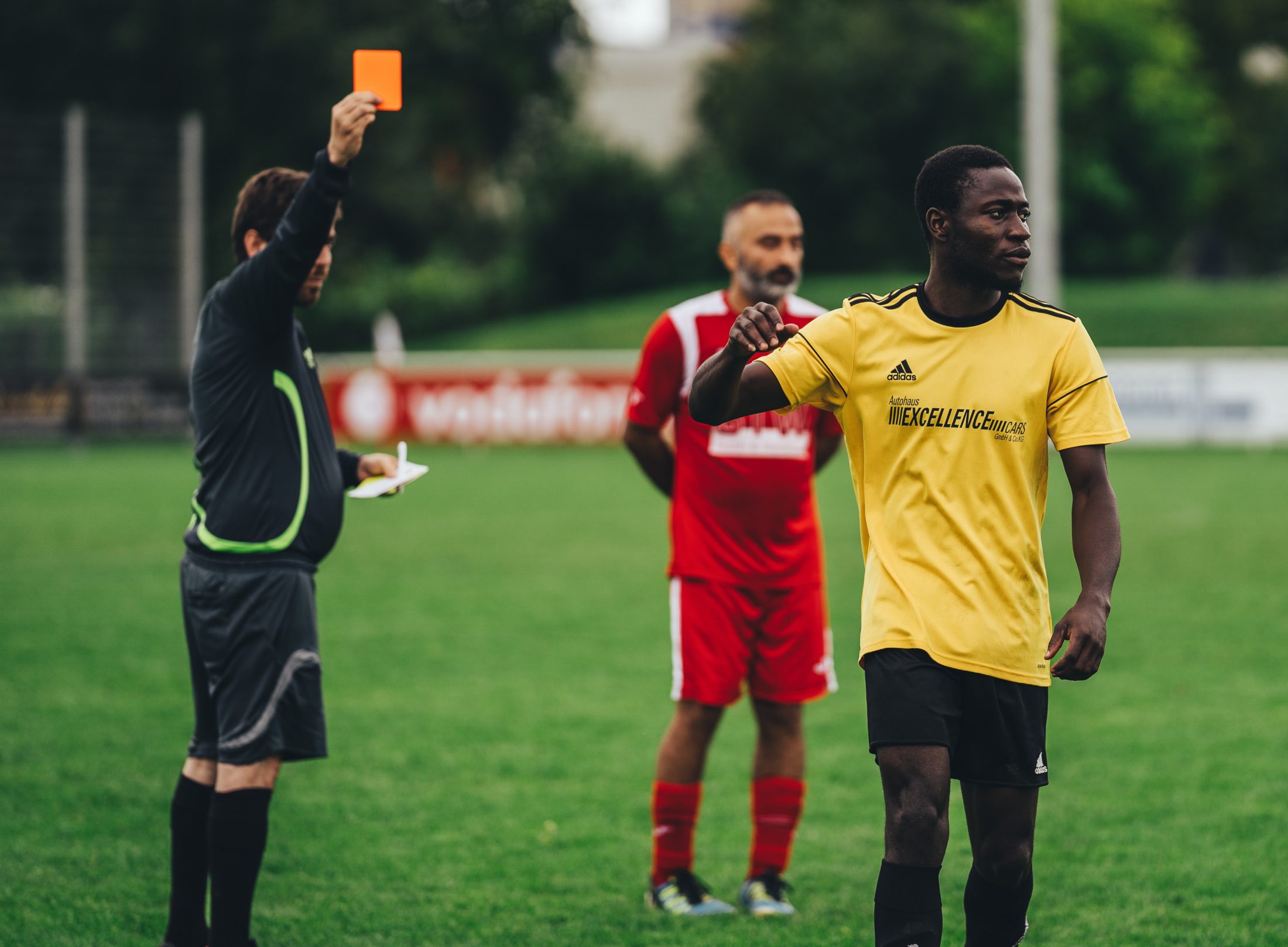In business, it’s common to hear sports analogies at management levels. Executives talk about “winning”, “hitting a home run”, “my wheelhouse”, “bench strength”, “drop the ball”, and more. One of our senior associates has spent years as a management consultant project manager and a soccer referee, and recently noted how many of the skills he has developed translate across the boundary. In his words:
I have spent close to ten years working as both a Project Manager (PM) and a soccer referee, and have found striking similarities between both roles and functions. Very similar qualities are needed to be effective and successful, and they include dedication, commitment, discipline, timeliness, attention to details, communication, understanding of the subject matter, empathy, patience, teamwork, fitness, and documentation.
I will seek to highlight similarities between officiating a soccer game, and managing a project.
Establishing common understanding and goals:
In a project, the Kick-Off meeting offers an opportunity for the PM to meet with the client and agree on schedule, deliverables, scope, and perhaps budget. The PM gets to meet with the project team, and defines each member’s role, as well as the reporting methodology and structure. It’s the first opportunity to set boundaries and establish trust. Finally, a good PM will discover the culture of the client’s organization to understand history, roles, and identify advocates and supporters.
Similarly, the Pre-Match meeting offers an opportunity for the Center Referee (CR) to meet the Match Commissioner (like the Client), as well as his team comprising the assistant referees and the fourth official. The Center referee’s preferences and methods of communication are discussed in detail and fully understood by the other officials. This established clear roles, and understanding of the responsibilities of each assistant. The peculiarities of the specific game are discussed, such as time management, history between the competing teams, and coaches’ culture/mannerisms.
Communication and style:
The PM’s communication skills are, perhaps, the most important and most used during projects. Regular updates and explanations are given to stakeholders as needed, with opportunities to address questions asked. A strong project manager will understand how to communicate and motivate in times of crisis, while having the EQ to appropriately handle the stress of certain situations.
In Soccer, the referee is expected to be a symbol of strength, calmness and authority on the field. The rules of the game should be interpreted and adhered to, with specific consideration given to context and situations as games develop. The referee constantly communicates with his assistants, the coaches, and the players to explain calls or warnings issued.
Integrity and Enthusiasm:
A good PM leads with enthusiasm, with a bounce in their step, and a can-do attitude. Good project leadership demands commitment to, and demonstration of ethical practices. Creating standards for ethical behavior for oneself and living by these standards, as well as rewarding those who exemplify these practices, are responsibilities of project managers.
The same applies to a referee who approaches the job with enthusiasm and a positive attitude. This immediately transmits to the other referees, as well as players and coaches. A referee should never give anyone any reason to perceive any form of bias. Instead, he focuses on the integrity of the match and equal competition.

Influence:
Finally, a good PM will be the invisible force behind a project, keeping it within the guardrails and scope given. The best project managers are those who help the team succeed from the background, but make sure rules are followed as appropriate.
The referee is tasked to also keep the teams within the rules, but any referee will tell you they want to enforce the rules but hope for a clean match. A good referee uses hand signals and body language to diffuse potentially volatile situations on the field. Sometimes a quiet look will communicate to a player they are crossing a line, before calling a foul.
Working as a soccer referee has helped me in many ways carry out my job as a PM. It is also a very good way of serving the community, especially covering games involving kids, teenagers, and the elderly.
Are you a PM that seeks to develop your all-round skills while giving back to your community? I encourage you to try working as a soccer referee. Are you a soccer referee seeking to leverage your skills in the marketplace – Project Management may be the way to go.

